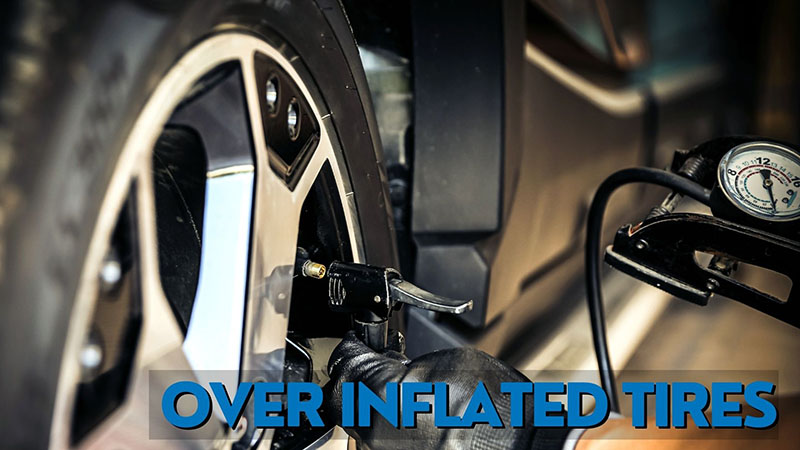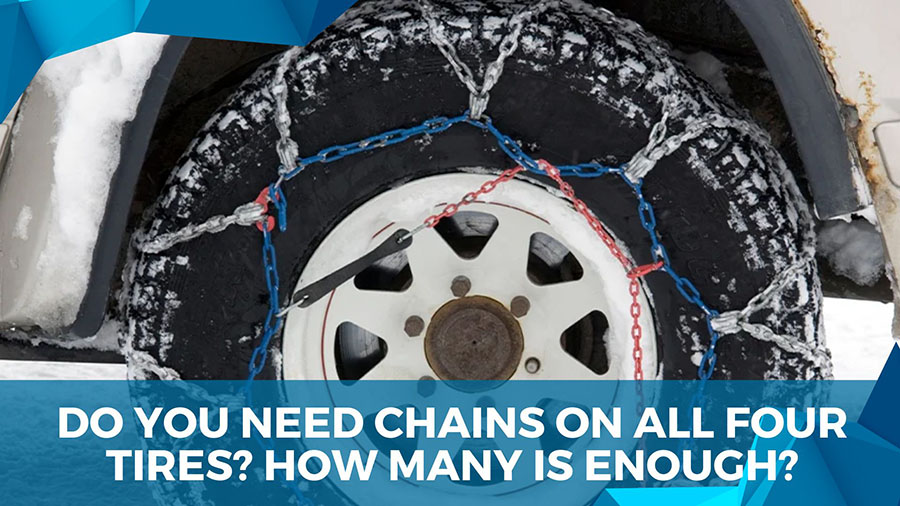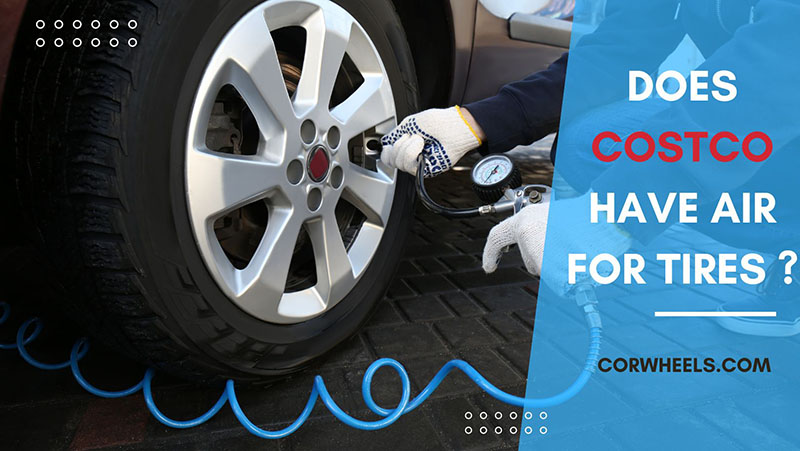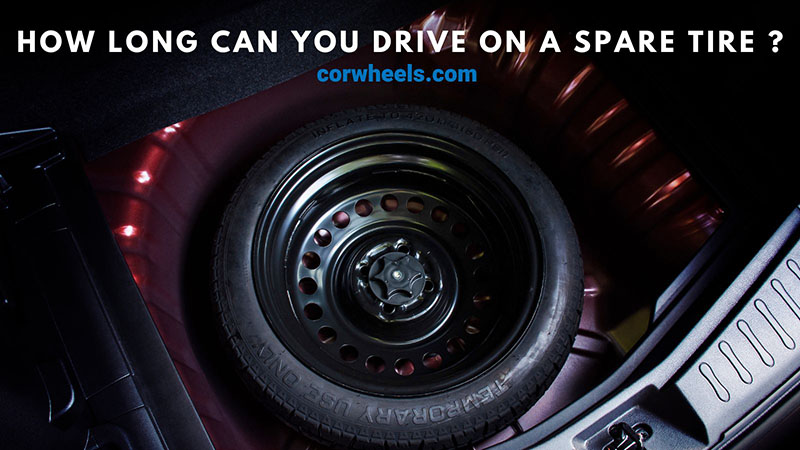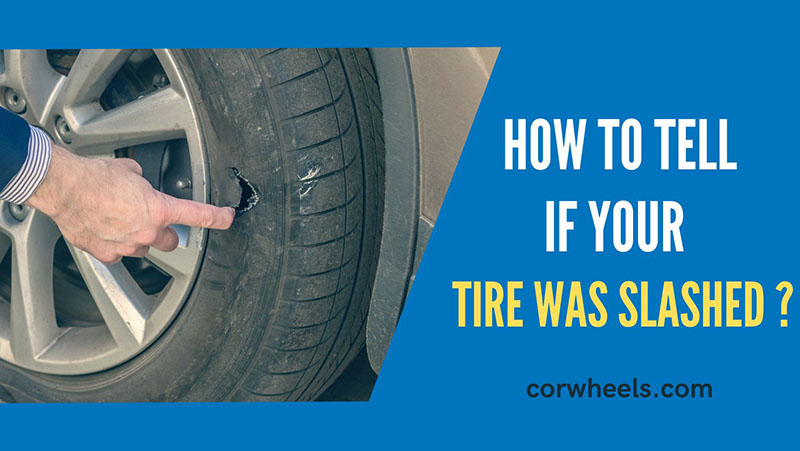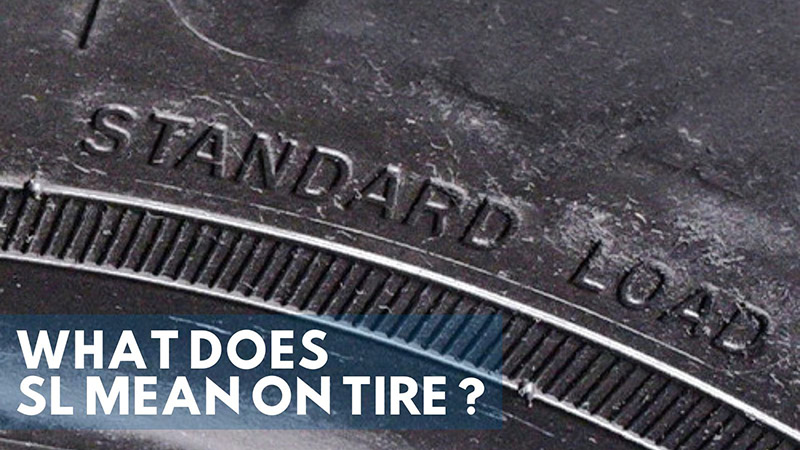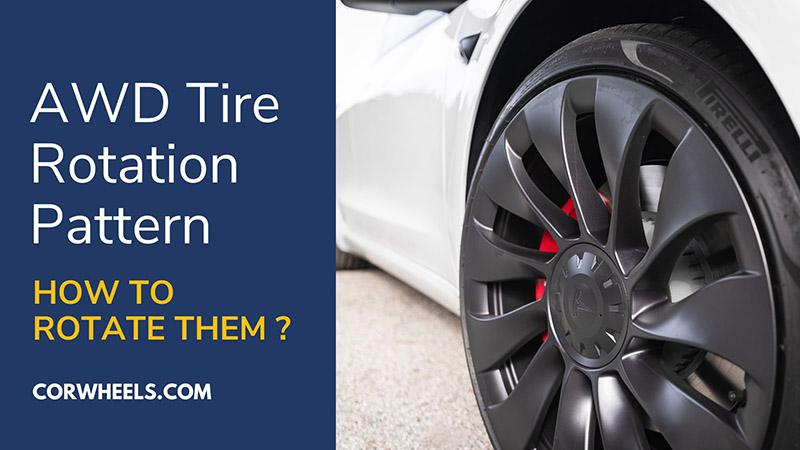What happens if tire pressure is too high? You will find all the answers to these questions in this article. Let’s learn more information about your over inflated tire!
In this article:
What Happens If You Over-Inflate A Tire
Overinflating a tire can have several negative effects on the vehicle’s performance and safety, like tire damage, blowouts, or even accidents.
Potential Blowout And Accident
If you drive with overinflated tires, various problems may arise. Most seriously, overinflated tires are more likely to blow out. A tire blowout puts you and other drivers on the road at risk by hindering your control over the car and increasing the stopping distance, which likely leads to a collision.
Your car’s safety systems, such as the anti-lock braking system, are also built to function when the wheels are inflated according to the tire manufacturer’s specifications. Some of your car’s driver assistance features may be compromised by overinflated tires.
Damaged Tire
Overinflated tires are prone to damage. Fully inflated ones are more rigid and inflexible, rendering them more vulnerable to debris, curbs, and potholes. And it’s never easy to feel every dip and bump in the road.
Excessive tire air pressure can change the tire’s contour, reducing traction and causing more wear and tear in the tire’s center. Depending on the situation, tires that have frequently been overinflated may deteriorate more quickly.
Over Inflated Tires Symptoms
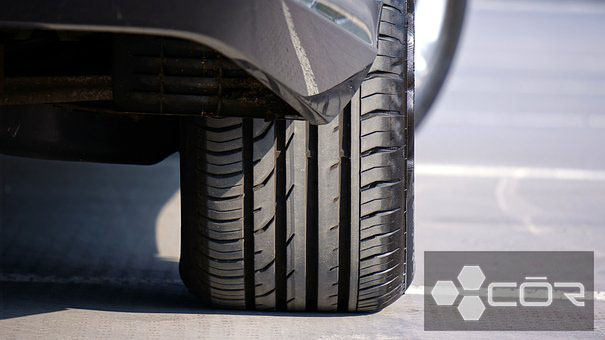
Decrease Traction
When the tires are overinflated, their central portion will bulge, and their contact patch will shrink significantly compared to correctly inflated ones.
This means only a tiny part of the tire makes contact with the ground, leading to less total traction. Your braking distance and cornering are also impacted by traction loss, making your automobile feel like it is sliding.
Center Treads Showing Excessive Wear
Suppose you find your tires’ centers are worn out; this is a clear red flag that the tire inflation pressure is too high. As the center treads of overinflated tires bear the brunt of the vehicle’s weight, they wear out faster than the surrounding treads.
Uncomfortable Riding Experience
Once you drive with an overinflated tire, riding on smooth, paved roads can still be an uncomfortable experience since they are stiffer and less flexible than the ones that are properly inflated.
As a result of the rigidity, overinflated tires are unable to absorb this shock, and a bumpy ride is inevitable.
Car System Failed
Certain systems, such as the anti-lock brake and electronic stability control systems, will be impacted when your tires are overinflated. Keep an eye on the ABS or ESC light. These devices are only effective when the tires adequately grip the ground and the car is in good working order.
Because of this, your car systems will not operate as they should, which is unsafe for you and others on the road.
How Many PSI Can I Over-Inflate My Tires?
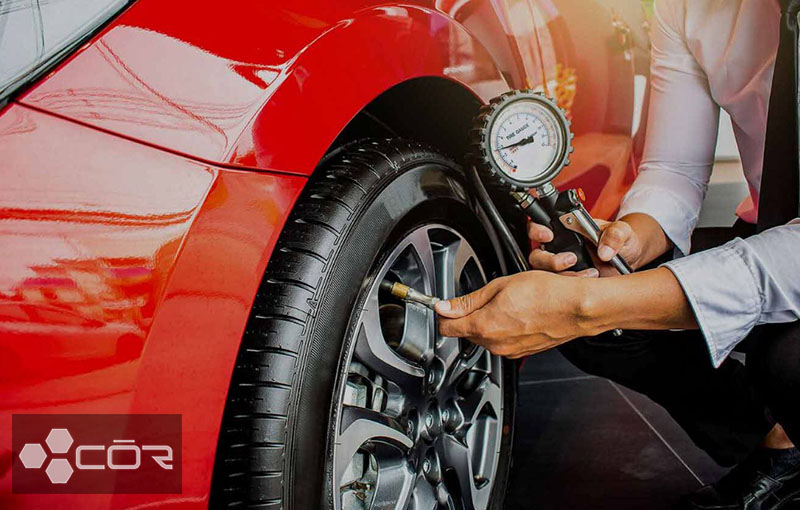
PSI stands for “pounds per square inch” and is a unit of measurement used to specify the pressure of the air inside a tire. You can overinflate your tires by 10% or even more with little to no repercussions as long as you keep them below the maximum tire pressure indicated on the tire’s sidewall.
Let’s say 35 PSI is advised, and your tire’s sidewall specifies a maximum acceptable pressure of 44 PSI; you can safely set your tire pressure at 38 to 40 PSI.
Still, overinflating your tires beyond the recommended pressure can sacrifice safety and handling, so it is important to follow the manufacturer’s guidelines for tire pressure.
How To Deflate Over-Inflated Tires
Deflating your tires is a simple task. Here is how to lower tire pressure.
- Step 1: Find your tire’s valve stem. Once you locate it, twist the cap to reveal a metal pin inside.
- Step 2: Use an air pressure tool and press it on the metal pin to let out the air.
- Step 3: As you let air out, periodically check the tire pressure till you reach the advised PSI.
Rule Of Thumb: Only perform this task on cool tires for the most accurate reading of tire inflation and pressure measurement.
Frequently Asked Questions
Is Tire Pressure Important?
Yes. The vehicle’s weight distribution remains constant with appropriate and equal tire pressure. This maintains the stability of your automobile across the tread of the tire.
Does Over Inflating Tires Save Gas?
Yes. But it will do more harm than good.
Driving on over inflated tires may slightly improve fuel efficiency in some cases, but we don’t recommend you use this method. It can lead to several issues, as we have mentioned above, which eventually cause damage to your vehicle and compromise safety.
Can Over Inflated Tires Cause Cupping/Vibration?
Yes. Cupping is a form of uneven wear that occurs when the tire bounces up and down on the road surface, causing high and low spots on the tread. Overinflated tires can exacerbate this bouncing effect, leading to more severe cupping and a rougher ride.
The Bottom Line
While over inflated tires seem like an easy solution to improve fuel economy, they can cause a variety of negative effects on your vehicle’s performance and safety. Thus, it is important to regularly check and maintain proper tire pressure to ensure a safe and comfortable driving experience.

